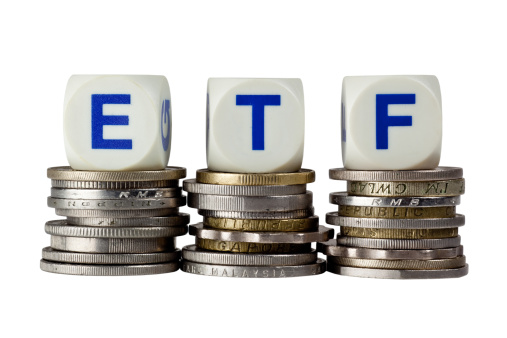Investing
Top Hedge Funds Using Exchange Traded Funds to Boost Gains and Lower Costs
Published:
Last Updated:
The hedge fund industry sure seems and looks different now when compared to a decade or two ago. We recently wrote about how the 2% and 20% pricing strategy long imposed on hedge fund investors may soon have a day of reckoning as far as being the standard pricing. Hedge fund investors have become increasingly dissatisfied with high fees for substandard performance.
It appears that hedge funds also are using other methods to lower costs as they feel the pressure from investors on fees. Everything from outsourcing back office, compliance and legal, to cutting costs from trading by lowering commissions paid to Wall Street. One way they are attempting to lower costs and track the broader markets is by using the same exchange traded funds (ETFs) that retail investors are using.
The world’s largest hedge fund, Bridgewater Associates, is based in Westport, Conn., and was founded by Ray Dalio in 1975. According to financial blog ZeroHedge, around $61 billion of the assets under management at Bridgewater are allocated to its Pure Alpha actively traded fund. Pure Alpha has generated averaged annualized net returns of 14% over its 22-year track record. Not stunning by hedge fund standards, but very solid.
Its 13F filings have consistently shown a heavy reliance on ETFs to obtain the broad market exposure that the fund looks for, while using large single stock positions to generate returns higher than their benchmarks, or generating alpha. Bridgewater and other large hedge funds are using staggering positions in ETFs to fill out their portfolio spectrum with these highly liquid, easily traded securities. It also buys a large basket of stocks for one commission, versus the hundreds the fund would pay to own all of the stocks within the ETFs.
In filings it was reported that Bridgewater owned just under $3 billion in the iShares MSCI Emerging Markets Index ETF (NYSEMKT: EEM), $3.3 billion in the SPDR S&P 500 Trust (NYSEMKT: SPY) and about $3.6 billion in the Vanguard MSCI Emerging Markets ETF (NYSEMKT: VWO). The Vanguard fund, for example, has an expense cost of an extremely low 0.18%, which like all funds is deducted from the net asset value. Clearly Bridgewater is content in using passive index ETF strategies to gain global equity coverage and save money on managing the position.
The question for investors considering hedge funds is why they would want to spend large fees on a hedge fund that is basically a closet indexer using the same tools that retail investors are. The answer is twofold. Hedge funds using the strategy have such tremendous firepower from the sheer amount of assets under management that they control, that combined with leverage they can substantially increase performance numbers. In addition, large positions in ETFs that pay dividends, like the ones Bridgewater owns, help contribute to the overall total return of the fund. Again, increased if the fund employs leverage.
This also may boost some of the more shrill arguments from pundits on Wall Street that ETFs may be the cause of the next big market crash. If retail investors and hedge funds all began to sell at once, there could be a difficult price to pay. However, that argument can be made of almost any asset class, so it is not just specific to ETFs.
Like we wrote about recently, hedge funds are having their feet held to the fire on costs. They are using every practical way to lower the costs they pay, so if the performance, or lack thereof, promotes discussion of lower fees from clients, they are still able to claw back some of the huge expense costs associated with running a large fund. Still, to many of our readers, the thought that hedge funds resort to the use of the same investment products that retail investors employ may take a little of the sheen of the hedge fund glow.
Retirement planning doesn’t have to feel overwhelming. The key is finding professional guidance—and we’ve made it easier than ever for you to connect with the right financial advisor for your unique needs.
Here’s how it works:
1️ Answer a Few Simple Questions
Tell us a bit about your goals and preferences—it only takes a few minutes!
2️ Get Your Top Advisor Matches
This tool matches you with qualified advisors who specialize in helping people like you achieve financial success.
3️ Choose Your Best Fit
Review their profiles, schedule an introductory meeting, and select the advisor who feels right for you.
Why wait? Start building the retirement you’ve always dreamed of. Click here to get started today!
Thank you for reading! Have some feedback for us?
Contact the 24/7 Wall St. editorial team.